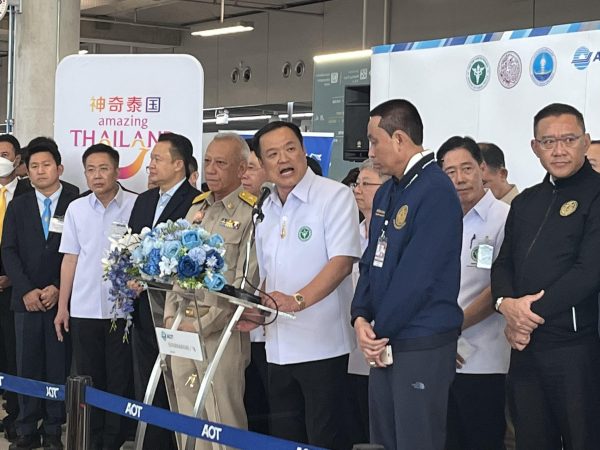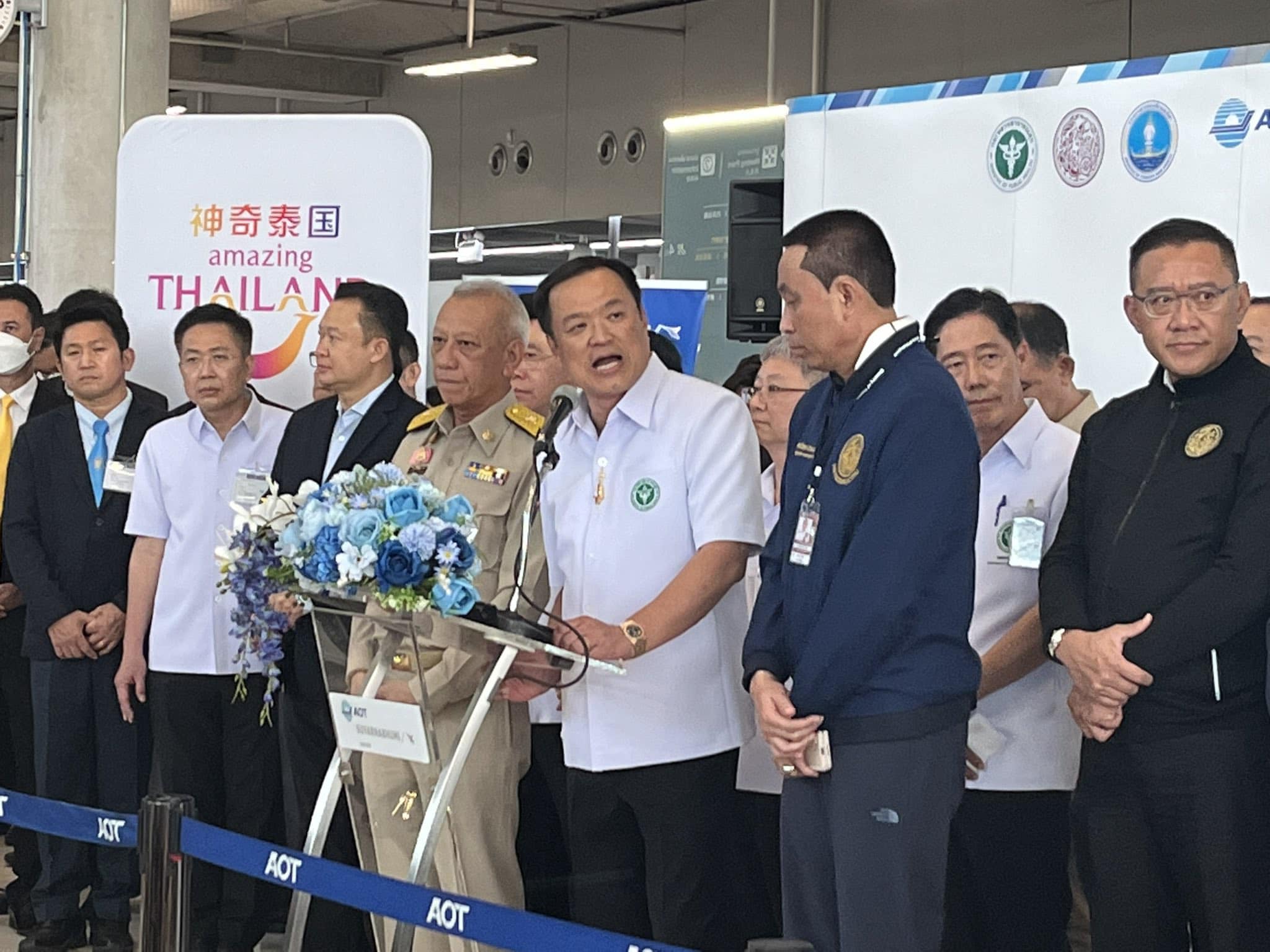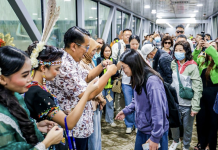BANGKOK, 9 January 2023: Thailand engaged in a trademark backflip late Monday that reversed Covid-19 entry rules introduced just a day earlier.
The Civil Aviation Authority of Thailand started the ball rolling on a bizarre backflip that introduced new rules for airline travellers entering the country effective 9 January and, within a day, rescinded every one of the changes to take us all back to square one.

The Deputy Prime Minister and Minister of Public Health, Anutin Charnvirakul, corrects the chaos.
Better late than never, the Tourism Authority of Thailand (TAT) got into the act during the afternoon of 9 January with its statement that attempted to regain confidence saying, “Thailand continues to welcome all international tourists under the fully-reopen-to-tourism policy that was introduced on 1 October 2022.”
Thailand’s Deputy Prime Minister and Minister of Public Health, Anutin Charnvirakul, just hours earlier on Monday, ditched the none starter rule change noting, “International travellers arriving in Thailand are not required to show proof of vaccination.”
In addition, foreign tourists are not required to show ATK or RT-PCR test results.
TAT assures travellers that Thailand continues to offer longer stays for visitors. Through 31 March 2023, stays can extend to 45 days (up from 30 days) for tourists from countries entitled to visa exemption and 30 days (up from 15 days) for those eligible for a visa on arrival.
Backflip in motion
The bizarre backflip began when the Civil Aviation Authority of Thailand issued a Notice to Airmen at the weekend that identified new entry requirements. Bloomberg news first reported the change on 8 January, saying the new rules would come into play on the following day (9 January) and remain until at least 31 January.
Bloomberg said details of the reintroduced Covid-19 entry requirements for foreigners flying into the country had been posted on the transport minister’s website. Other media referred to a CAAT Notice to Airmen sent to all airlines serving Thailand.
According to the CAAT rule changes, airline travellers arriving in Thailand had to show certification for at least two vaccinations or a recent Covid-19 recovery note from a doctor not older than July 2022.
CAAT’s website and the Tourism Authority of Thailand’s online newsroom, as of midday 9 January, did not refer to any of the changes. The only source appeared to be the Note to Airmen.
Health insurance rule survives
Local media reported the new rule required tourists from countries that currently demand visitors from Thailand to undergo a Covid test to enter needed to show Thai authorities they had health insurance to cover their stay in Thailand. That survives the backflip.
For example, India has reintroduced mandatory Covid-19 tests for travellers arriving from China, Hong Kong, Japan, South Korea, Singapore and Thailand. Based on the new CAAT rule, visitors from India arriving in Thailand will need proof that they have health insurance to cover their stay in Thailand, just in case they test positive before they depart for home. China applies the same test requirement for arriving passengers. The health insurance requirement remains after the backflip, but it only applies to travellers returning to countries that require a test-on-arrival. (However, it makes sense to buy travel insurance whenever booking flights to Thailand.)
Consumers and travel industry associations spent Monday pushing back against the changes logging complaints on Facebook pages. The PR Thai Government Facebook post is packed with objections from tourists planning to visit Thailand who said they had cancelled their trips. In addition, travel industry leaders told TTR Weekly the change would be very damaging for inbound tourism to Thailand from around the world and “may have been based on a misunderstanding of some sort.”
The main travel trade associations in Thailand that lobbied for the return to the fully open policy welcoming all tourists included the Association of Thai Travel Agents (ATTA), the Thai Hotels Association (THA) and the Pacific Asia Travel Association (PATA).
(Source: Bloomberg, PR Thai Government Facebook, Richard Barrow Facebook, TAT)







